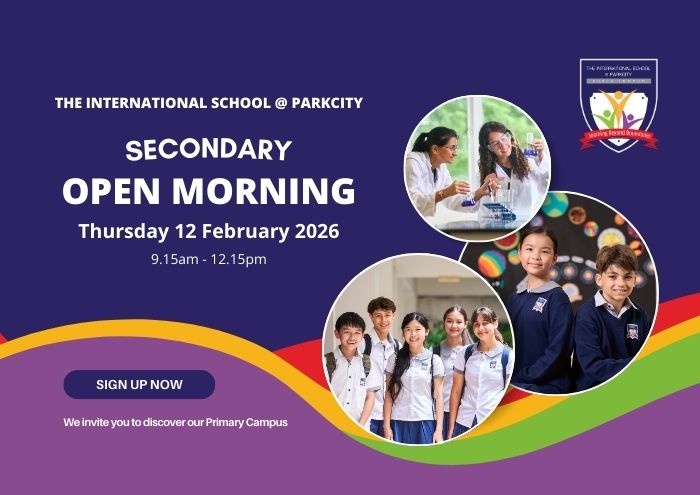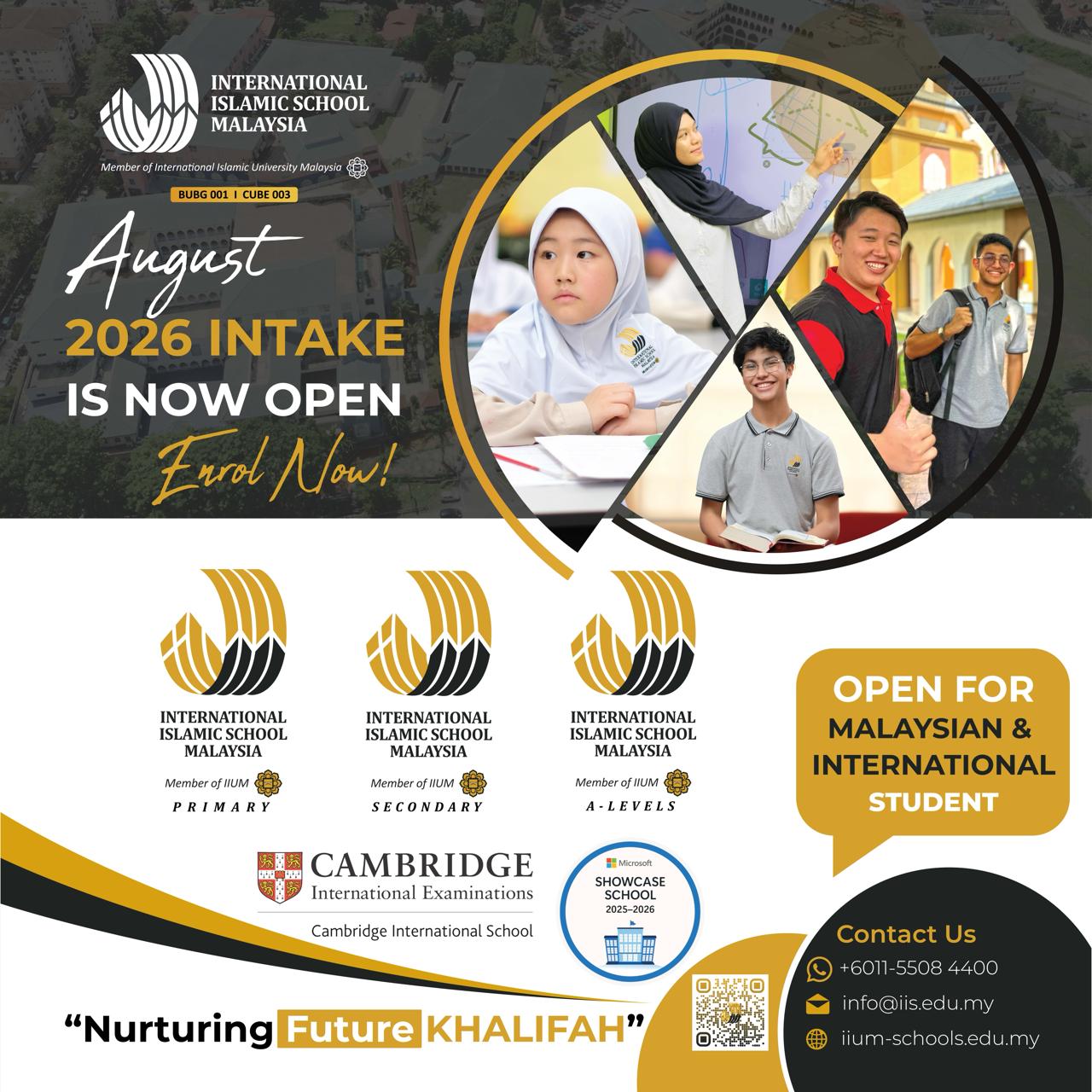Choosing the next step after secondary school is a big decision for both parents and teenagers. With so many pathways available, it can feel overwhelming to know which direction to take. Whether your goal is a traditional university education, practical work experience, or time to explore your passions, the options are varied. From internationally recognized pre-university programmes to hands-on diploma courses, each pathway offers a unique opportunity for growth and success. This guide will help you and your children navigate the different academic choices and find the one that best aligns with their future goals.
Here are the academic options open to you
- A Level
A UK-based qualification, the A Level is a 100% exam-oriented programme accepted by most universities worldwide and locally. Taken over the course of one and a half years, students typically select three to four subjects. The minimum entry requirement is five credits (including English) in SPM, IGCSE or the equivalent. The programme is split between two stages – Advanced Subsidiary Level (AS Level) and Advanced 2 Level (A2 Level). Exams are held in June and November.
With fewer subjects, the knowledge acquired is more thorough compared to the other programmes. As certain university degree programmes have specific entry requirements including prior study in certain subjects, it is advisable to choose your A Level subjects with the university course in mind.
- SACE International and AUSMAT
The South Australian Certificate of Education (SACE International) and Australian Matriculation (AUSMAT) are Australian qualifications, ideal for students aiming to study in Australia, New Zealand, and beyond. Both programmes last 10 to 11 months, with students taking five to six subjects. Entry requirements include five credits (including English) in SPM, IGCSE, or equivalent. While SACE is assessed with 70% coursework and 30% exams, AUSMAT gives equal weight to both at 50%. Exams take place in November.
- CPU and CIMP
The Canadian Pre-University (CPU) and Canadian International Matriculation Programme (CIMP) are ideal for students aiming to study in Canada. These 12- to 18-month programmes include up to six subjects, including English, and award the Ontario Secondary School Diploma. Entry requires five credits in SPM, IGCSE, or equivalent. Assessment is 70% coursework and 30% exams. Students must also pass the Ontario School Secondary Literacy Test (OSSLT) and complete 10 hours of community service. Both programmes emphasize real-world learning through public speaking, debates, and projects.
- IBDP
The International Baccalaureate Diploma Programme (IBDP) is a globally recognized Swiss qualification requiring two years of study. It aims to develop well-rounded students knowledgeable in both sciences and humanities, making it one of the more challenging and expensive pre-university options. Assessment includes coursework and final exams, with students choosing six subjects from groups like language, sciences, and the arts. They must study three or four subjects at Higher Level, requiring up to 240 teaching hours, while Standard Level subjects involve 150 hours of instruction.
Additionally, students complete the Theory of Knowledge (TOK) course, write an Extended Essay, and participate in Creativity, Action, Service (CAS) projects for 150 hours. TOK encourages critical reflection on knowledge, while the Extended Essay involves independent research on a chosen topic.
- ADP
Unlike the other qualifications, the American Degree Programme (ADP) is unique in that it is not a pre-university programme. Rather, it is an undergraduate degree programme. Taken over a duration of four years, students typically study three to four subjects each semester. In order to graduate, one must obtain 110 to 140 credits. In Malaysia, students may choose to complete their entire four-year programme in the country or transfer to a university of their choice abroad, usually in the United States or Canada after one or two years.
The minimum entry requirement is five credits in SPM, IGCSE or the equivalent. The assessment is split between 30% exams and 70% coursework. Unlike the A Level which is exam-based, the ADP is ideal for those who prefer coursework to exam-based assessments. Additionally, in the first two years, students get to learn about and explore subjects unrelated to their major. This broad-based education allows for flexibility since students can still switch majors within the first two years of the programme.
- Foundation Programmes
Foundation programmes offer a fast track to an undergraduate degree, usually completed in 12 months. Students study 10 to 13 subjects related to their intended degree. There is a minimum entry requirement of five credits in SPM, IGCSE, or equivalent and assessment is a mix of coursework and exams. While students typically continue their degree at the same university, some programmes offer twinning options, allowing transfers to partner universities abroad after one or two years. However, switching majors mid-programme is difficult. Prior research into twinning options is advised for those considering studying overseas.
- Diploma Programmes
Diploma programmes are a practical option for those looking to enter the workforce quickly, typically completed in two to three years. Specialising in a specific industry, these programmes equip students with hands-on professional skills, allowing graduates to seek immediate employment. Alternatively, diploma holders can continue their studies, often entering the second year of an undergraduate degree since the diploma is equivalent to the first year.
Diploma programmes are more affordable, with options for financial aid like the PTPTN loan in Malaysia. They also have lower entry requirements, usually needing a minimum of three credits in relevant subjects. Assessments are a mix of coursework and exams, and many programmes include internships to provide real-world experience. Ideal for those with a limited budget or seeking faster career entry, diplomas offer both immediate readiness for employment and pathways for further education.
Choosing the right academic path is an important step, but figuring out which career to pursue may feel overwhelming at times. If your child is unsure about the direction that he or she wants to take or needs guidance, michelelam.com offers an online course on career decision-making competencies designed specifically to help students. This course dives into essential skills such as self-awareness, exploring career options, and making informed decisions based on the student’s strengths and interests. Whether they are aiming for university, considering a diploma, or exploring other pathways, the course will equip students with the tools to navigate their future with confidence and skill.
Continue reading:















![[Maahad Tahfiz Negeri Pahang] Asia Youth International Model United Nations](https://mint-edm.sgp1.digitaloceanspaces.com/production/qKffTsfZisDxO4b6kcejusAA7mWWgL.jpg)





















